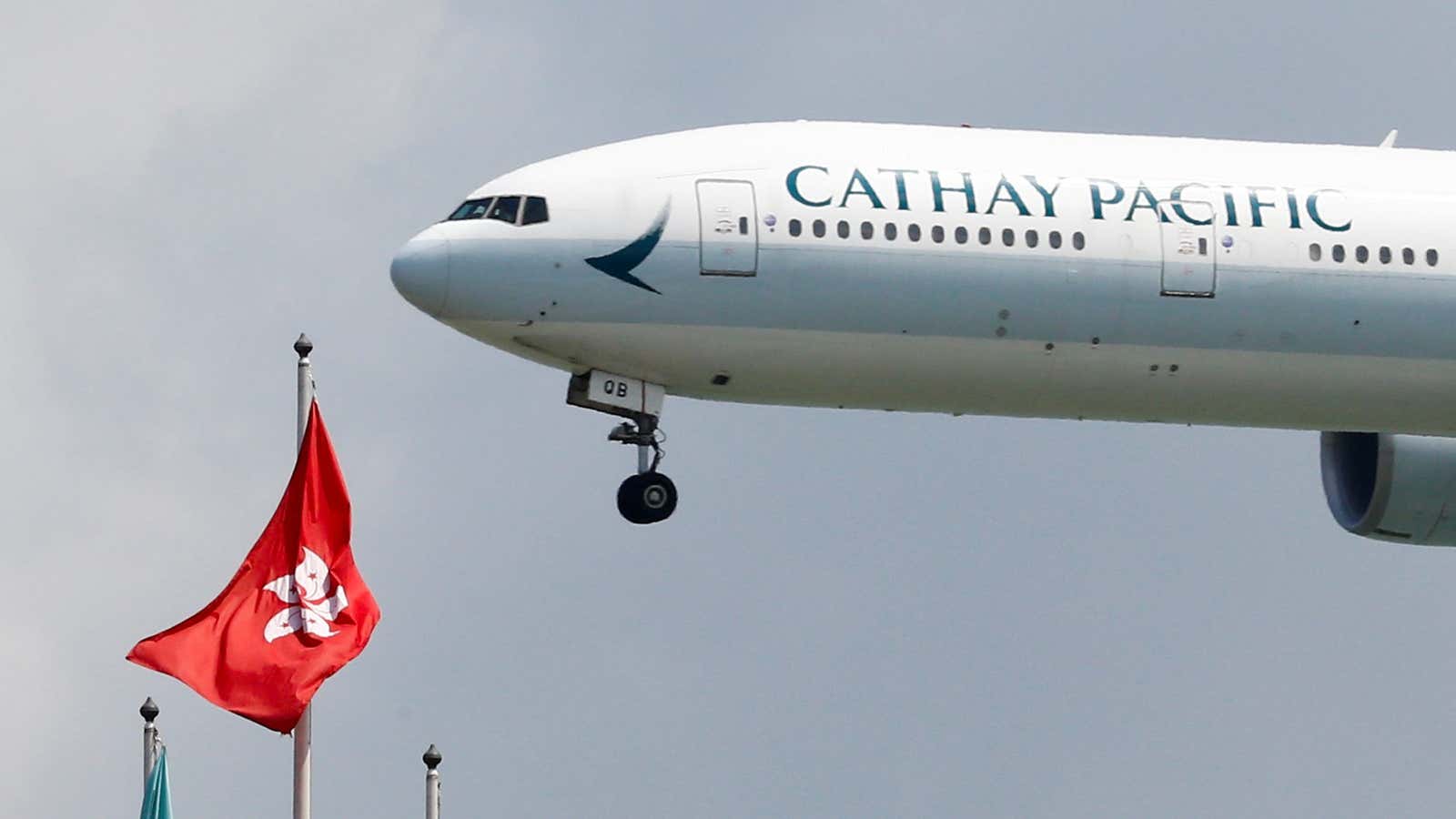Nearly six months of continued unrest in Hong Kong, where violent anti-government protests continue to rage, is taking its toll on the city’s tourism industry. Between August and November, some 3.3 million fewer passengers came through the doors of its airport, compared to the same period a year earlier. In November, passenger traffic fell by around 969,000 people, or a year-on-year decrease of about 16%—the worst drop in more than a decade.
In a statement, the Airport Authority said that the airport had experienced a sharp drop in arrivals: “Passenger volume continued to be affected by weak visitor traffic, with passengers to and from the mainland and Southeast Asia experiencing the most significant decreases.” The fall is despite the efforts of airlines including Hong Kong’s own Cathay Pacific, which has slashed fares with a stop in Hong Kong.
Tourism is among Hong Kong’s largest industries, employing some 257,000 people (pdf) as of 2017. A plunge in arrivals, therefore, is bad news for the service sector, especially hotels and retail businesses. In July, after the first month of protests, retail sales fell 11.4% by value. In the time since, Hong Kong has entered its first recession in over a decade, with a GDP contraction of 3.2% in the third quarter.
Seduced by low airfares and cut-price hotel rooms, many tourists who have opted to brave the unrest have found themselves caught in the fray. The Airport Express, which runs to the city’s central business district, has sometimes been closed altogether, or skipped stations in between its two terminuses. The MRT, normally among the world’s most efficient public transit systems, has also been shuttered during protests.
While countries such as the United States are encouraging their citizens to stay home, or pick an alternative destination, Hong Kong itself is anxious to reiterate that it’s still very much open for business. In a statement on the Brand HK website, the government vowed to “resolutely uphold the rule of law in dealing with any protests to minimize disruption to businesses and daily life,” and expressed a desire for Hong Kong to return to normal. So far as visitors and investors are concerned, it said, “Hong Kong remains a welcoming city.”
